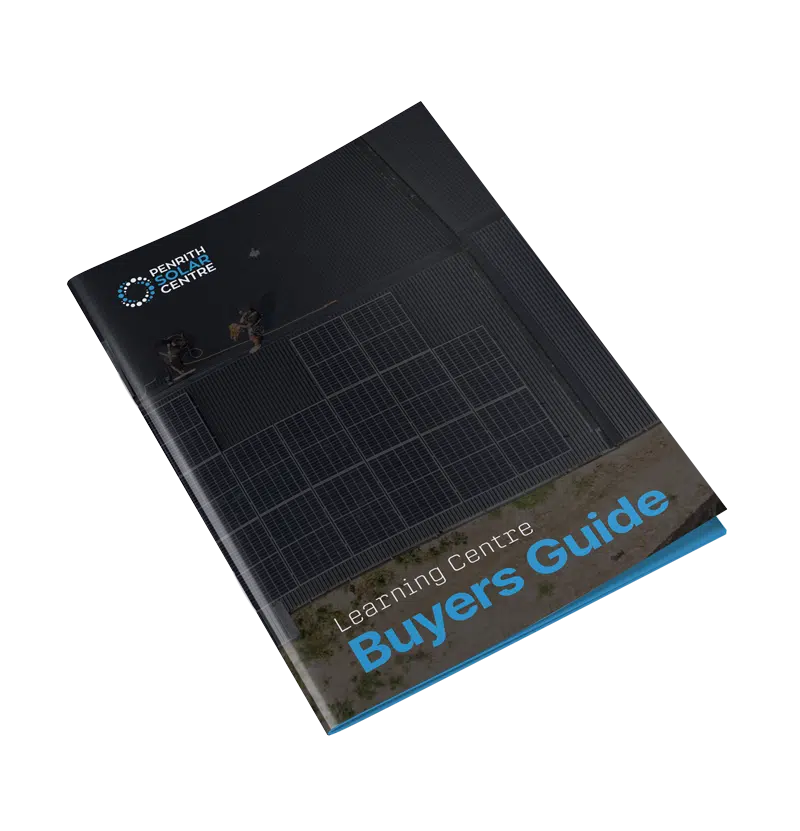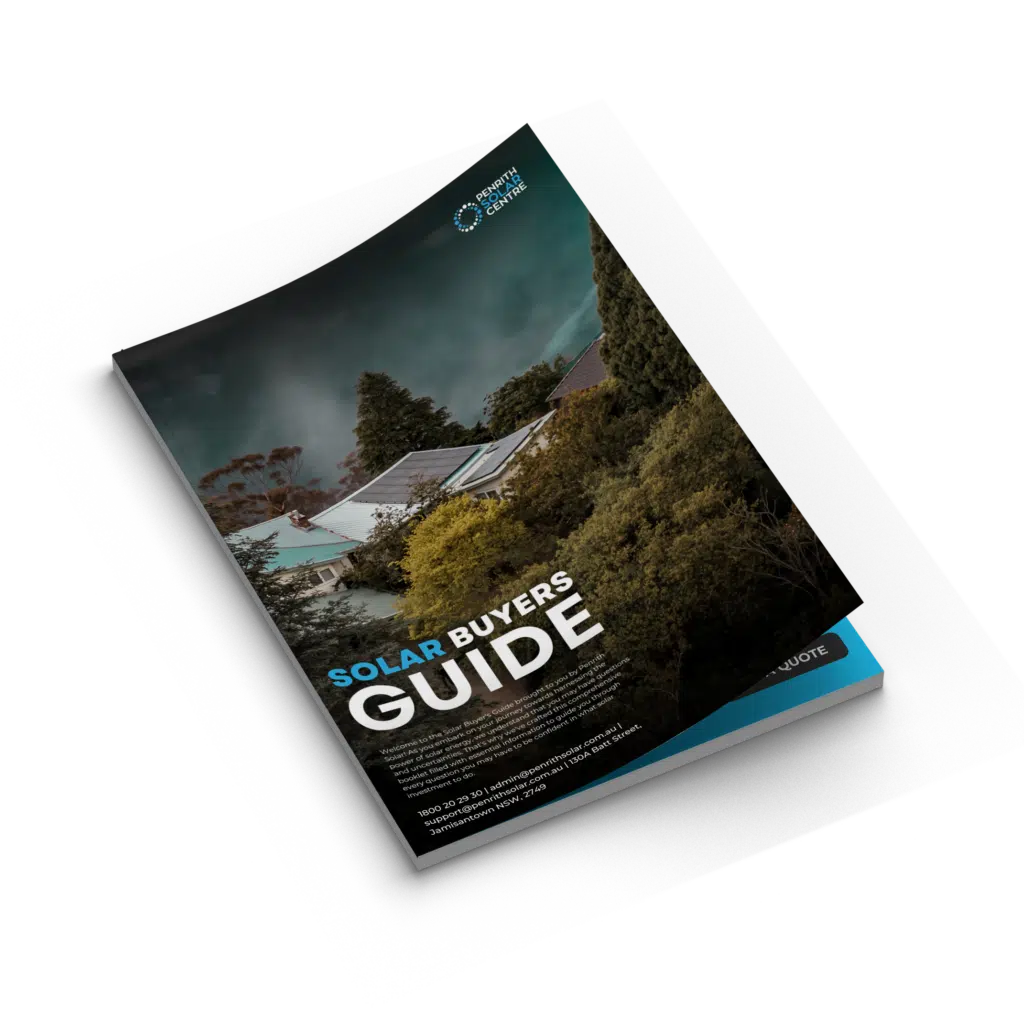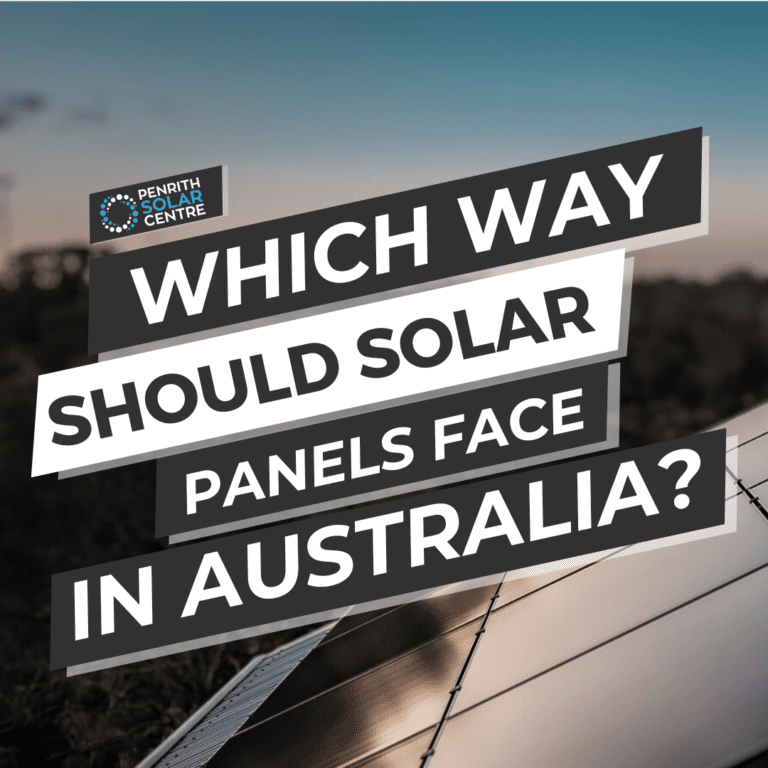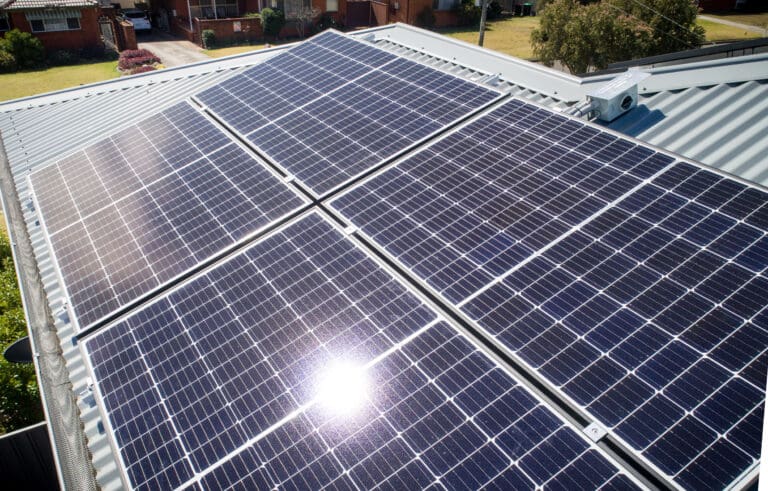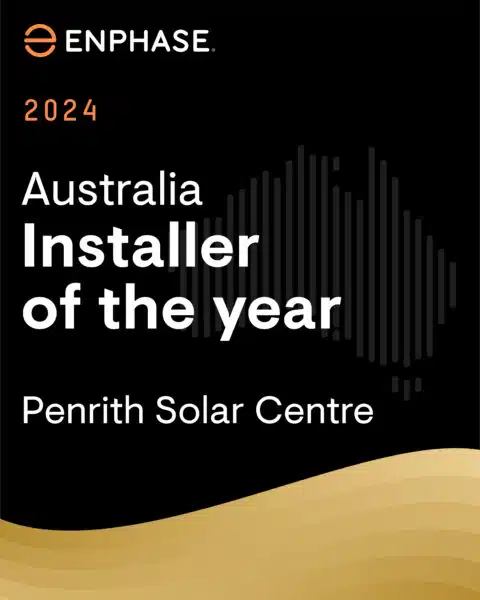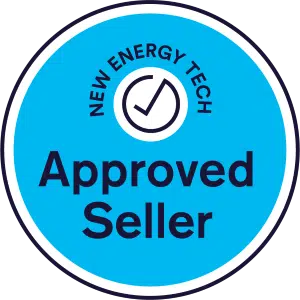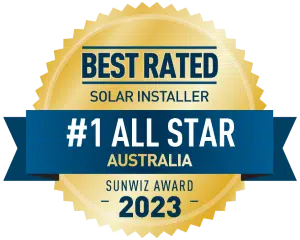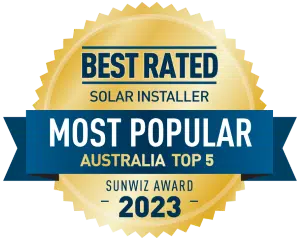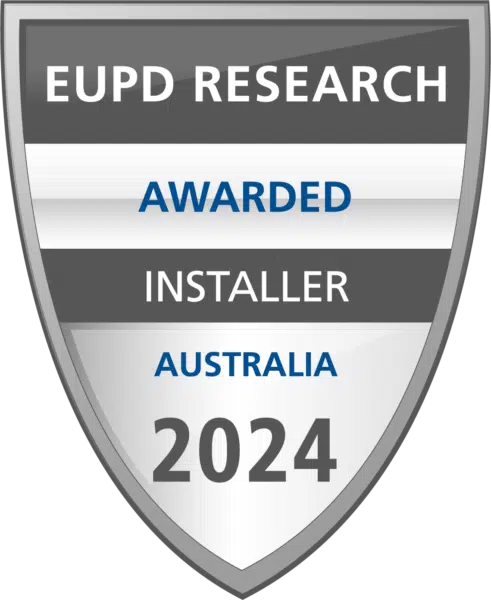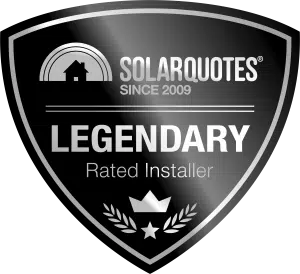Solar energy is incredibly popular in Australia for good reason. It’s pushing our national and global community towards Net Zero by 2050, and it’s saving Australians thousands on their energy bills.
You’re interested but know very little about solar energy.
At Penrith Solar Centre, we know that investigating and shopping for solar components has a steep learning curve. Unfortunately, study time is the only solution to ensure you’re getting a good deal on a solar system. Fortunately, we’re here to help expedite the process. Here are six quick and easy mistakes to avoid when buying a solar system.
In this article, you will learn:
- What Questions Should You Ask Before Buying Solar Panels?
- How Does Shade Affect Solar Panels?
- Should You Wait for Solar Panel Prices to Drop?
- Is Solar Energy a Scam?
- Cheap vs. Expensive Solar
- How Long is a Solar Panel Warranty?
By the end of this article, you will have insight into the solar industry which will save you some time as you research solar solutions.
What Questions Should You Ask Before Buying Solar Panels?
Setting up a solar system isn’t easy. It takes an upfront investment, and you expect it to last. The system will pay itself off in a few years, but will it continue to make money for you for in the years after that?
Asking the right questions will accelerate your return on investment and shorten your payback period. But that won’t happen unless you ask the right questions to get the best education you can about solar panels, inverters, and batteries.
Here are a few we recommend starting off with as you investigate installers.
Have you gotten multiple quotes?
Get quotes from at least three installers or sellers. Make sure the quotes are itemised, so you understand everything that’s going into your system. Don’t just focus on the price. Check what brands they use and then go read reviews about those products. Don’t just rely on one quote. Compare them all and pick the best one for you.
Has the solar installer you’re talking to asked you about your unique energy needs and goals? Or did they try to sell you something first without listening? That’s a huge red flag.
How long has your solar installer been in business?
Experience matters in the solar industry. An installer with many years in business has spent more time learning and developing how to troubleshoot a variety of installations.
Ask around, what’s their reputation like? People will leave reviews online when they’re dissatisfied and want to save someone else their frustrations (and maybe get a wee bit of revenge against their installer).
Also, if they’ve been around a while, it suggests they’re reliable. Businesses that don’t meet their customer’s needs tend to close. Research them a bit. A little bit about their history goes a long way to give you peace of mind. Especially when you get into what their long-term support is like.
Is your solar installer SAA-certified?
The Clean Energy Council (CEC) has going through a change. Before this year, the CEC was the organisation that accredited solar installers and determined the standards for them to meet.
The CEC is now Solar Accreditation Australia (SAA).
Certification for solar installers is an indicator of quality and compliance in the solar industry. SAA-certified installers are trained and accredited to meet high standards of safety and performance.
This certification also means they are up to date with the latest technologies and regulations. Choosing a SAA-certified installer ensures your system will be installed correctly, the most important way to get the safest and most efficient system possible.
If you’re curious to learn more about the change from the CEC to the SAA, you might want to check out the following webpage on the CEC website titled, Accreditation Transition.
Is your solar installer an in-house installer or are they a sales company that hires subcontractors?
Knowing whether the installer uses in-house staff or subcontractors can impact the quality and accountability of your installation. In-house installers are direct employees of the company and adhere to stricter quality controls and company standards than the competition.
There are many fantastic subcontractors out there, but the reality of the business is that they get paid by the panel, and the faster they install those bad boys, the more money they’ll make.
They are incentivised to rush. Understanding this can help you choose an installer who is aware of this and will provide consistent, high-quality service and be accountable for the entire process.
Where are you getting your information from?
The internet is free, use it wisely.
A great place to start is with the blogs listed in the following article titled, 5 Best Solar Energy Blogs in Australia.
Don’t expect a list of four blogs with ours included at the end to round out the list. We wouldn’t do that. Besides, you’re here already. Go check out our competition. Go ahead. We’ll wait. You’ll be back.
How Does Shade Affect Solar Panels?
The two main types of solar systems that are on the market today are central inverter systems and microinverter systems. We are biased. We install microinverter solar systems because they work well with shade.
The biggest divide in the solar industry comes down to how a panel deals with shade. Sometimes that shade is soft because it’s coming from clouds in the sky, and sometimes that shade is hard because it’s coming from a nearby telephone wire that cuts across your roof every afternoon at 1:30 PM.
Shade is everywhere and it’s just a part of solar. How your system deals with shade will affect its efficiency and your bottom line.
Every salesperson selling central inverters with DC architecture claims that you only need microinverters if you have shade on your roof. But clouds cause shade on every roof, don’t they?
It can be difficult to navigate so many opinions when you’re searching for facts. It’s a great idea to jump on some of those blogs we mentioned and study up on your own.
If you feel like starting off with our side of the story, you might want to start with the following article titled, Microinverters vs. String Inverters: An Honest Comparison.
Should You Wait for Solar Panel Prices to Drop?
Solar technology and components prices have been dropping significantly since Australia started offering rebates. This price index is one of our favourites by the good folks at Solar Choice:
This graph will never get lower than zero. Please stop waiting for that to happen.
As you can see in the above price index, the price of solar systems has actually plateaued since 2021.
Solar panel setups can have a significant upfront cost, but waiting for lower prices is unwise. If you wait a year, you really ought to add the amount of money you paid for electricity for the full year of waiting. Is it over $1,000? Over $5,000?
Is the amount of money you’re hoping to save more or less than what you’ll spend on electricity while waiting for the price to drop? The amount of money you’re continuing to pay your energy retailer really ought to be included in the upfront cost of your system when you’re crunching those numbers.
If you’re interested in learning a bit more about the state of solar in Australia and why it’s a good idea to install solar sooner rather than later, you might want to check out the following article titled, Opinion: Should I Buy Solar Now or Wait?
Is Solar Energy a Scam?
Nope.
The solar energy industry is booming in Australia. Over 30% of roofs nationwide have some kind of solar system on them. There’s a lot of misinformation about solar efficiency out there. When a system underperforms for a customer, it doesn’t just to reflect poorly on the manufacturer, but the entire industry.
Different companies (including this very blog article) are shouting at the top of their lungs that their system is superior, and the competition is inferior. Solar energy has been around for a bit, but only recently has it been efficient enough to be used as a viable energy replacement for fossil fuels.
Like any sales industry, it’s a good idea to be suspicious of any door-knocking, cold calls, or high-pressure sales tactics. Scammers use these tactics, often aiming to pressure consumers into immediate decisions.
Telemarketing, though legal, can also be a channel for scams. Similarly, social media platforms frequently have fraudulent advertising.
Deals that seem too good to be true often are. Researching companies, reading reviews, and getting multiple quotes can help you assess the legitimacy of the salesperson.
And don’t believe anyone selling you anything as a representative of SSA or CEC. The SAA (formerly the CEC) is a government organisation that does not sell or offer free solar. Anyone suggesting otherwise is a liar.
If you’re interested in getting multiple quotes from legitimate solar installation companies that might not be us (but you should get at least three or four quotes anyway), you might want to check out the following article by the New Energy Tech titled, Find an Approved Seller.
Cheap vs. Expensive Solar
With solar, quality always beats price. It’s an investment for the long haul. A quality solar system will save you money in ten, twenty, and thirty years from now. A cheap system will need to be replaced long before that.
The more you spend, the more you will save. This isn’t a wild claim.
Every home is different and has its unique energy needs and goals. Will a cheap system meet those needs? It might. We can’t say for certain, because everyone uses energy differently. There’s a wide margin of error.
Many people choose a smaller system because it’s cheaper. But you should know that you will only benefit from your solar system if you install enough panels to meet your needs.
And those needs are going to increase. Electric vehicles will replace petrol cars. This is not a prediction, it’s already happening.
When your cheap solar system begins to underperform, you’ll need to purchase electricity from an energy retailer. The very same industry that raised energy prices twice last year by a total of 20%. Do you trust them to not raise prices again?
It’s something to consider. How are you going to get your energy in ten years? How much will it cost?
A solar system costs money today, but you’re purchasing an energy coupon for the next 25 years, possibly longer. Once the system is paid off with the money you’re saving on energy bills, everything your solar system provides you is free.
This is a long-term investment, and it needs to work well for a long time.
If you’re interested in learning a little bit more about the cost and value of solar equipment, you might want to check out the following article titled, String Inverters: Are They Worth It?
How Long is a Solar Panel Warranty?
The warranty a solar manufacturer offers for its product is the best way to select the brand of solar components you install.
Companies hate liability because it’s expensive. Making a false claim about the longevity of their product puts them at risk when it comes to fulfilling warranties. If they are willing to put their money where their mouth is, then you ought to trust that.
A central inverter solar system has components that are warranted from 5 – 10 years with the occasional central inverter warranted up to 15 years.
A solar system with AC architecture (like a microinverter system) has components that are warranted for up to 25 years.
The microinverter system will last longer, so while it might cost more upfront, you won’t need to replace the central inverter every ten years. That additional cost should be considered when choosing a solar system.
There’s not a great deal of difference in the efficiency of solar panels. If your panel’s efficiency is higher than 90%, they’re worth considering. With solar panels, you’ll want to investigate the warranty rather than the efficiency rating. Longevity is what you should be shopping for in a panel.
If you’re interested in learning a bit more about how warranties work in the solar industry, you might want to check out the following article titled, A Complete Guide to Solar Warranties.
Solar: Better Light Than Never
Now you know what we consider to be the 6 biggest mistakes you can make when shopping for solar. Remember to step cautiously around the following:
- Don’t wait for solar installation prices to drop. Components will certainly get more efficient, but cheaper? Probably not.
- Be cautious around potential scams. If something is too good to be true it probably is.
- Ask questions. Ask lots and lots of questions. But honestly, that’s just good life advice. You should probably always ask someone to explain what you don’t understand. People appreciate that degree of authenticity.
- Learn how your roof will interact with shade. It will inform your purchase.
- Saving money now on the upfront cost may end up costing you significantly more than you intended or were promised.
- Warranty periods and after-sales support should inform your decision. You need to know what the anticipated lifespan of your investment is.
At Penrith Solar Centre, we want you to learn about solar and make the best choice for yourself and your household. We know we’re not the best fit for everyone. We’re happy you found us regardless. If you’re inspired, please feel free to reach out for a free quote.
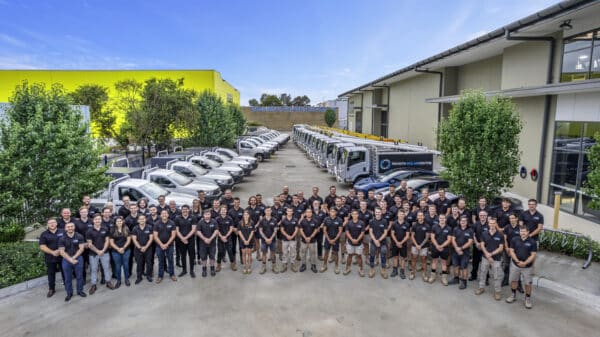
If you’re interested in learning a bit more about what solar installers offer, you might want to check out the following article titled, In-house Installers vs. Subcontractors: Which is Better?
